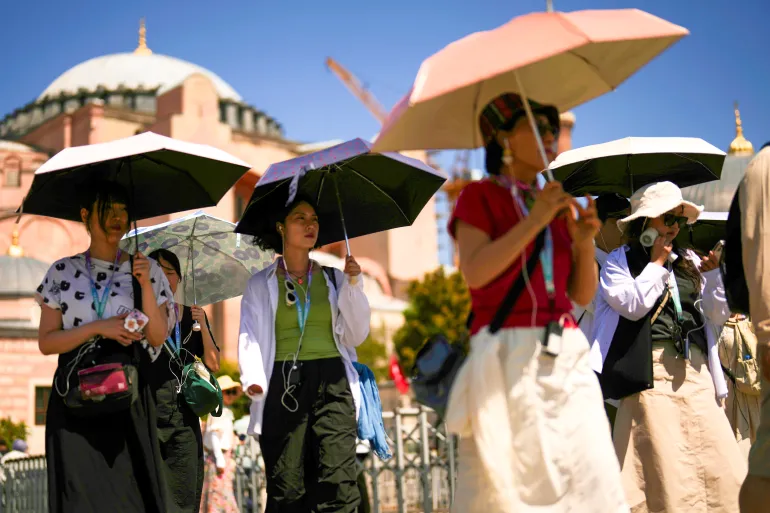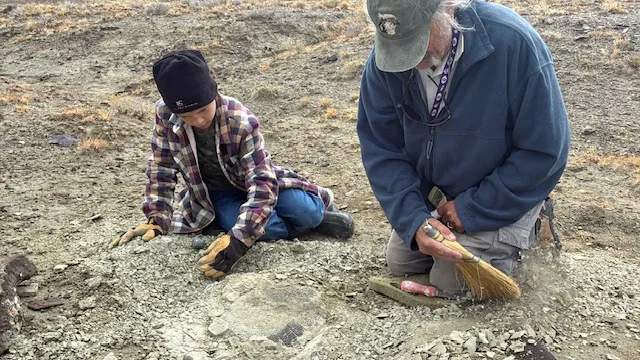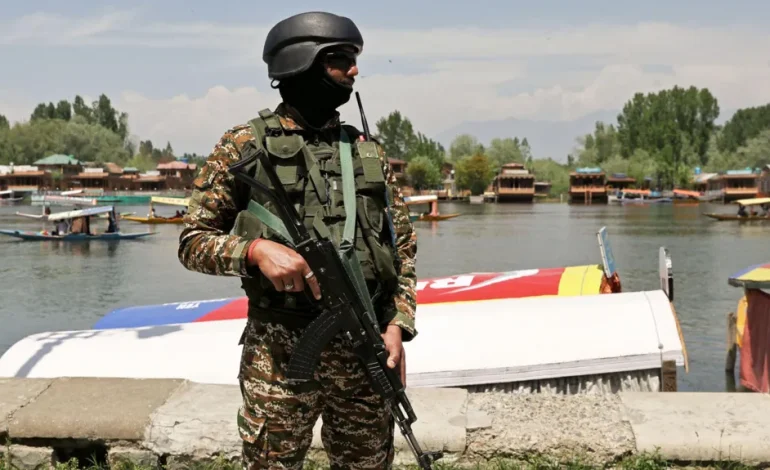Indian officials reported that their troops briefly exchanged fire with Pakistani soldiers along the heavily militarized Line of Control in Kashmir late Thursday.
The incident comes at a time of heightened tensions between the nuclear-armed neighbors, following a deadly militant attack earlier this week.
According to three Indian army officials, who spoke on condition of anonymity, Pakistani forces opened fire near an Indian military post, prompting Indian troops to return fire. The officials said no casualties were reported. Pakistan’s Ministry of Foreign Affairs has not commented on the exchange.
The flare-up follows Tuesday’s attack near the popular tourist town of Pahalgam in Indian-administered Kashmir, where gunmen killed 26 people, most of them Indian tourists. India has described the incident as a terrorist attack and accused Pakistan of supporting the perpetrators. Pakistan has strongly denied any involvement, and the assault was claimed by a previously unknown group calling itself the Kashmir Resistance.
The violence has triggered a series of retaliatory diplomatic and policy moves. India has suspended a decades-old water-sharing treaty, revoked visas issued to Pakistani citizens, and shut down the only active land border crossing with Pakistan. In response, Pakistan canceled Indian visas, closed its airspace to Indian aircraft, and halted bilateral trade.
Protests have broken out on both sides of the border. In India, demonstrators burned Pakistani flags and demanded a strong response. In Pakistan, protestors condemned Indian Prime Minister Narendra Modi and criticized India’s suspension of the Indus Waters Treaty, calling it a provocation. Pakistan has warned that any attempt to divert water from the Indus River system would be considered an “act of war.”
The 1960 Indus Waters Treaty, brokered by the World Bank, had endured through wars and political crises, dividing the river basin’s waters between the two countries. India, as the upstream nation, holds a geographical advantage but lacks the large-scale infrastructure needed to hold back or divert substantial water flows, especially during peak periods. However, experts warn that changes during dry seasons could have a greater impact.
Meanwhile, investigations continue into the Pahalgam attack. Authorities in India have accused two local residents and two alleged Pakistani nationals of involvement, but have yet to publicly present evidence. Indian security forces reportedly demolished two homes linked to the suspects, a tactic used in the past against alleged militants. One relative questioned the justification for targeting civilian property.
The situation has had international ramifications as well. Airlines in India, including Air India and IndiGo, are rerouting flights to avoid Pakistani airspace, leading to increased costs and extended travel times. Aviation industry experts warn that the disruption could affect thousands of flights, particularly those departing from New Delhi.
The United Nations has called for restraint on both sides and urged peaceful resolution through dialogue. Despite repeated conflicts over Kashmir, India and Pakistan both maintain that the region is rightfully theirs.
With input from Reuters, the Associated Press, and BBC.









The latest news in your social feeds
Subscribe to our social media platforms to stay tuned